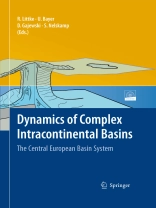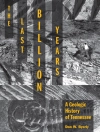Sedimentary basins host, among others, most of our energy and fresh-water resources: they can be regarded as large geo-reactors in which many physical and chemical processes interact. Their complexity can only be well understood in well-organized interdisciplinary co-operations.
This book documents how researchers from different geo-scientific disciplines have jointly analysed the structural, thermal, and sedimentary evolution as well as fluid dynamics of a complex sedimentary basin system which has experienced a variety of activation and reactivation impulses as well as intense salt tectonics. In this book we have summarized our geological, geophysical and geochemical understanding of some of the most important processes affecting sedimentary basins in general and our view on the evolution of one of the largest, best explored and most complex continental sedimentary basins on Earth: The Central European Basin System.
İçerik tablosu
Characteristics of Complex Intracontinental Sedimentary Basins.- The Central European Basin System – an Overview.- Strain and Temperature an Space and Time.- Basin Fill.- Salt Dynamics.- Fluid Systems.
Yazar hakkında
R. Littke focuses on petroleum and gas geology and geochemistry, basin modelling, coal geology and environmental geochemistry. He holds a Professorship in Geology and Geochemistry of Petroleum and Coal at RWTH Aachen University and is coordinator of the German priority research programme ‘Dynamics of Sedimentary Basins under varying Stress Regimes (DFG SPP 1135)’ and member of the Academy of Science of North Rhine-Westphalia.
U. Bayer works on basin analysis and modelling with focus on the integration of geological and geophysical concepts as well as coupled fluid, heat and mass transfer. He is currently working at the Geo Forschungs Zentrum Potsdam and holds a professorship at the Freie Universität Berlin. He is co-coordinator of the DFG SPP 1135.
D. Gajewski is interested in reflection seismic processing and imaging, seismic anisotropy, and ray methods. He currently holds the chair of Applied Seismics at the University of Hamburg, Germany. He is a member of the steering committee for the Geophysical Instrument Pool Potsdam (GIPP), the director of the Wave Inversion Technology (WIT) consortium and co-coordinator of the DFG SPP 1135.
S. Nelskamp is interested in basin modelling and petroleum and gas geology. She is currently working on her Ph.D. thesis on basin modelling in the Netherlands at the RWTH Aachen University and is doing coordination work for the DFG SPP 1135.












